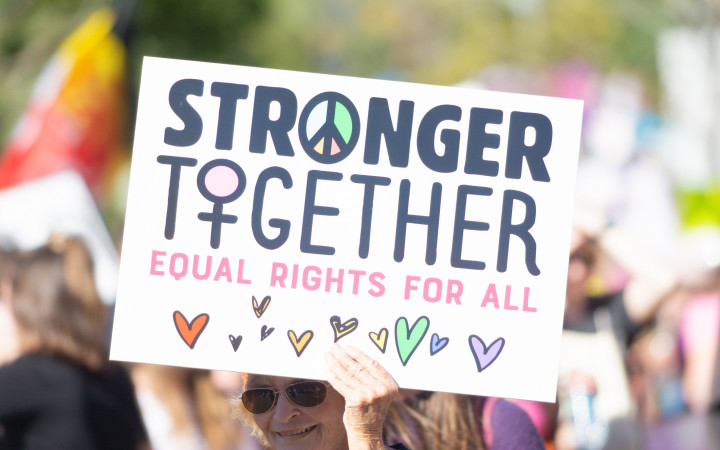Today’s Wonder of the Day was inspired by Hunter. Hunter Wonders, “what is a civil right?” Thanks for WONDERing with us, Hunter!
Do you have the right to free speech? How about the freedom of religion? Do you know about freedom of the press? Will you one day have the right to vote? These are all examples of what today’s Wonder of the Day is all about—civil rights!
You may have heard of civil rights before. But what exactly are they? The phrase “civil rights” comes from the Latin words ius civis. That means “rights of citizens.” Civil rights are personal rights that are protected by law.
Most governments have written laws. The United States has the U.S. Constitution and Bill of Rights. Both of these protect civil rights. However, many people believe civil rights are natural rights. In other words, civil rights come from the laws of nature—not as privileges from governments.
Have civil rights always been granted equally to all people? Sadly, no. For example, the U.S. once only gave the right to vote to White men. In addition, it was once legal to discriminate against people on the basis of race and gender.
Throughout history, brave people have often stepped forward to challenge such injustices. Reverend Dr. Martin Luther King, Jr., was one such person. His hard work on behalf of Black Americans was an important part of the civil rights movement of the 1960s.
Dr. King supported many forms of protest, including sit-ins and Freedom Rides. He pushed local, state, and federal governments to pass laws to end discrimination. He was joined by other civil rights leaders, including Malcolm X, Rosa Parks, and John Lewis. Although Dr. King was assassinated before he saw major changes, his efforts made a difference. He helped bring about the civil rights laws that were eventually passed.
Each year on the third Monday of January, Americans celebrate Martin Luther King, Jr. Day. This holiday marks the birthday (January 15) of Rev. Dr. Martin Luther King, Jr. It’s a special day for people to honor Dr. King with service to their communities.
What do civil rights mean to you? What would life be like without them? Today, many people in many places are still fighting for their civil rights. What can you do to help all people achieve equality?
Standards: C3.D2.His.2, C3.D2.Civ.8, C3.D2.Civ.12, C3.D2.Civ.14, CCRA.L.3, CCRA.L.6, CCRA.R.1, CCRA.R.2, CCRA.R.4, CCRA.R.10, CCRA.SL.1, CCRA.W.4




